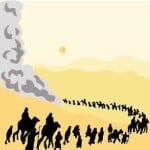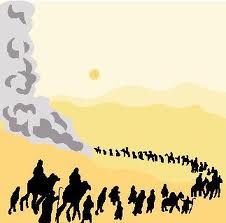 In the Torah portion of “Acharei “ we read the following regarding Yom Kippur: “For on this day it shall atone for you to cleanse you. Before the Lord, you shall be cleansed from all your sins”( Vayikra/ Leviticus 16:30).
In the Torah portion of “Acharei “ we read the following regarding Yom Kippur: “For on this day it shall atone for you to cleanse you. Before the Lord, you shall be cleansed from all your sins”( Vayikra/ Leviticus 16:30).
Our sages based on these words have explored the redemptive power of the actual day of Yom Kippur.In the words of the Rambam “ On yom kippur , it is the day itself that atones ..as it is written “For on this day it shall atone for you”( Mishneh Torah ,laws of repentance 1:3)
There is something about the day that elevates, instigates and reveals. In fact we believe that it is the essence of the day( Itsumo Shel Yom) that brings about atonement regarding the sins between mankind and G-d. Sins between man and man, on the other hand, must be explored and rectified .Yet Yom Kippur still acts as the catalyst for such a rectification.
How can a moment in time have an influence on the spiritual journey of an individual? In a world that sees time as something that passes us by ,this concept is truly incomprehensible. In the Hellenistic mindset which has defined western thinking for over two thousand years, time is viewed as a line moving from point A to point B. The Jewish Torah view of the world, on the other hand, sees specific dates and appointed times as gates through which time flows in a cyclical and upward spiral fashion.
The Biblical festivals therefore are called “callings of holiness,” mikra’ei kodesh, . That is to say that each is a gateway in the passage of time at which we are given the power to “call forth” the specific spark of spirituality and holiness ensconced within this appointed time. Yom Kippur therefore calls forth the potential spark of repentance. It impacts the soul in such a way to empower it to seek repentance. Pesach on the other hand calls forth the spiritual power of freedom, the power to become free of all the constraints that enslave us
Our sages tell us regarding Pesach in the Mishnah (Pesachim), “Bechol dor vador chayav adam lirot et atzmo keilu hu yatza miMitzraim” – “In every generation one is required to view oneself as if one personally left Egypt.” Maimonides (the Rambam) has a different version of the thought and writes, “…keilu hu atah yatza miMitzraim” – “…as if he is at this moment leaving Egypt.”
On the first level, we as a klal, as a people, feel the freedom that we had received in order to be a people of HaShem. On another level we need to feel the power of being liberated from our own limiting and confining Egypt in each of our own individual lives. The Hebrew word for shackles or for things that bind and constrain us is meitzarim, which is the source of the Hebrew name for Egypt – Mitzrayim.
Yet if as we have learned from Yom Kippur that those sparks of spiritual potential is ensconced within the very date of the festival why must our sages remind us that “In every generation one is required to view oneself as if one personally left Egypt.” Let the power of the day impact and transform the individual.
Very simply, this is so because most of us do not realize that in fact we are still slaves. Every individual continues to be enslaved in their own spiritual and physical Egypt. As a result, if we do not know that we are broken, there is no redemptive yearning to be fixed. If we do not comprehend the shackles that keep us confined there is no passion to be redeemed.
Therefore we remain shackled to the whims of our society , its dress codes and moral imperatives. Many of us remain enslaved to old ideals and beliefs without developing the courage to rethink them and break free of them. Many of us remain bound up with old habits and actions that though we sense that they further us from our highest aspirations, we accept them as inevitable.
To truly unlock the gates that enslave us we need to first acknowledge that we are still slaves. That is exactly what happened to our forefathers and continues in our lives. This is expressed in the declaration of the farmer in the land of Israel who lived generations after the Exodus . When he brings his first fruits to the Temple, he makes a declaration that we then repeat in the Passover Haggadah:.
“The Egyptians dealt harshly with us and oppressed us they imposed heavy labor upon us. We cried to HaShem… –(Devarim 6-8)” Only after that cry and sigh do we read “ and HaShem heard our plea and saw our plight, our misery, and our oppression. HaShem freed us from Egypt….” (ibid)
As we enter through the spiritual gateway called Pesach, we also need to re-experience the sigh and the groan of our enslavement . It is that awareness that empowers. It is then that HaShem begins to work for our redemption
My father Harav Baruch Kempinski ( Z’L) once taught regarding the ritual of opening the door for Elijah towards the end of the seder. At the beginning of the Seder, he said, we invited “all those that are spiritually and physically needy to join us with the prayer:
“All who are hungry, come and eat; All who are in need, come and partake in the Paschal offering.”
At that time we do not open the door. ” Surely”, he said” Elijah did not need an open door but the needy might? Why do we keep the door closed then?” He explained that in order to feed spiritually hungry people they have to first realize that they are behind a closed door and then decide to knock on the door. .
May we all discover the doors that block us and then with renewed passion knock on those doors. That decision needs to be the first step in achieving freedom and in every spiritual quest
